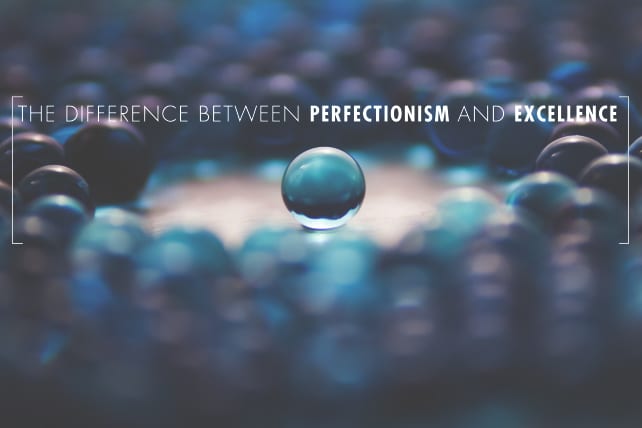What’s the difference between a healthy will to excel and perfectionism?
According to Allan Mallinger in Too Perfect: When Being in Control Gets Out of Control, the perfectionist’s credo is:
1. If I always try my very best and if I’m alert and sharp enough, I can avoid error, everyday blunders, oversights, and poor decisions or choices.
2. I must never make mistakes because they would show that I’m not as competent as I should be.
3. By being perfect, I can ensure my own security with others. They will admire me and will have no reason to criticize or reject me.
4. My worth depends on how “good” I am, how smart I am and how well I perform (pp. 37-38).
Based upon Mallinger’s explanation and many of my own observations, we can distinguish perfectionism from a healthy will to excel (excellence) in the following ways:
- Perfectionism is rigid; excellence is flexible.
- Perfectionism is self-defeating; excellence is health-giving.
- Perfectionism never satisfies; excellence gives pleasure.
- Perfectionism is impossible; the desire to excel is usually possible.
- Perfectionism does not distinguish between performing heart-surgery and washing dishes; excellence recognizes that some activities require more attention than others.
- Perfectionism cannot bear criticism; excellence seeks it and tries to grow through it.
- Perfectionism views failure as catastrophic; excellence views it as part of learning.
- Perfectionism procrastinates because of the fear of failing; excellence does what can be done each day.
- Perfectionism prefers safety to risk and rarely moves out of the comfort zone; excellence is more prepared to try new jobs and accept new challenges.
- A perfectionist must be right all the time; excellence accepts correction from others.
- A perfectionist’s sense of worth depends on perfect performance; excellence does not tie their identity to performance.
- A perfectionist can only see what’s lacking in a job or relationship; excellence sees what is good and enjoyable.
- A perfectionist clutters their communications (and sermons?) with too much boring and unnecessary detail (for fear of leaving anything out); excellence communicates with less detail but with more clarity, color, and effectiveness.
- A perfectionist might admit to general failings but refuses to be specific; excellence faces up to to both general and specific faults.
- A perfectionist is hyper-defensive of self and hyper-critical of others; excellence is more tolerant of others failings, having accepted and faced up to their own.
It’s little wonder then that perfectionists are among the most anxious, stressed and unhappy people on the planet (and so are those who have to live with them). Next time, we’ll begin to replace the perfectionist’s false and destructive credo with a true and constructive credo.












